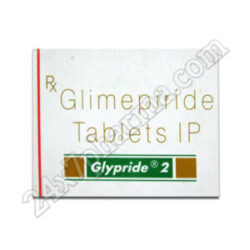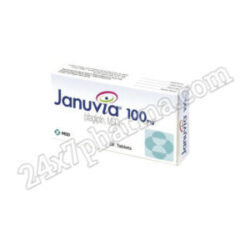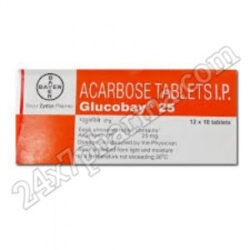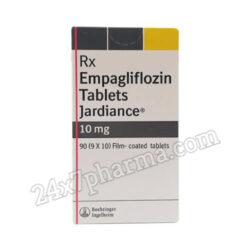LuciFine 10mg, Finerenone Tablets
Finerenone, a new non-steroidal mineralocorticoid receptor antagonist (MRA), is an ingredient in the prescription drug LuciFine 10mg. It is primarily used to manage decline and cardiovascular complications in this population. Developed with a more selective and safer profile than older MRAs like spironolactone or eplerenone, Finerenone has demchronic kidney disease (CKD) associated with type 2 diabetes. LuciFine offers an advanced therapeutic approach to reducing the risk of kidney functiononstrated considerable benefit in major clinical trials.
What is LuciFine 10mg (Finerenone)?
A brand-named form of Finerenone, a cutting-edge, non-steroidal MRA, is LuciFine 10mg. Unlike traditional steroidal MRAs, Finerenone is specifically designed to minimize side effects such as gynecomastia and electrolyte imbalances while maximizing cardiovascular and renal protection. It is indicated for patients with CKD associated with type 2 diabetes and has been approved based on evidence from the landmark FIDELIO-DKD and FIGARO-DKD clinical trials.
How It Works / Mechanism of Action
The mineralocorticoid receptor (MR), which is triggered by aldosterone, is antagonistic to finerenone. Overactivation of MR in the heart, kidneys, and blood vessels can lead to fibrosis (scarring), inflammation, and oxidative stress, which are key drivers of disease progression in CKD and heart failure.
Finerenone:
- Blocks MR without the steroidal structure, reducing pro-inflammatory and fibrotic gene expression.
- Decreases albuminuria (protein in the urine), a marker and contributor to kidney damage.
- Reduces oxidative stress in renal and cardiovascular tissues.
- This dual benefit on both the heart and kidneys makes Finerenone unique among MRAs.
How to Use / Indications
LuciFine 10mg is indicated for:
Treatment of chronic kidney disease (CKD) in adult patients with type 2 diabetes to reduce the risk of sustained eGFR decline, kidney failure, cardiovascular death, nonfatal myocardial infarction, and hospitalization for heart failure.
It should not be used on patients who have:
- Non-diabetic kidney disease,
- Severe hepatic impairment,
- Hyperkalemia (high potassium levels).
How to Take / Dosage
Usual Adult Dose:
- Initial dose: 10mg once daily orally.
- For patients with higher eGFR (≥60 mL/min/1.73 m²), a starting dose of 20mg may be considered (available in other strengths).
- Titration: The dose may be increased to 20mg once daily after 4 weeks if potassium levels remain below 4.8 mmol/L and no adverse effects are seen.
- Monitoring: Potassium levels and kidney function should be regularly monitored during treatment.
Administration:
- Can be taken with or without food.
- Swallow the tablet whole with water.
- Avoid grapefruit juice, as it may increase finerenone blood levels.
Other Dosage Forms & Strengths
- LuciFine 20mg (Finerenone 20mg): For patients requiring a higher therapeutic dose after initial tolerance to 10mg is established.
- Dosage adjustments depend on eGFR and serum potassium levels.
Side Effects
Common Side Effects:
- Hyperkalemia (increased potassium levels)
- Hypotension (low blood pressure)
- Dizziness
- Nausea
Serious Side Effects:
- Severe hyperkalemia (may require dose reduction or discontinuation)
- Worsening kidney function in some cases
- Electrolyte disturbances
- Monitoring Required:
- Serum potassium
- Kidney function (eGFR)
- Blood pressure
Tips: Avoid high-potassium foods (like bananas, oranges) if advised by a doctor.
Storage
- Store at room temperature below 30°C (86°F).
- To keep the drug safe from moisture, keep it in its original container.
- Keep out of reach of children.
- Do not use after the expiration date on the label.
Benefits
- Dual Cardio-Renal Protection: Protects both the heart and kidneys in diabetic patients.
- Reduces Albuminuria: Slows progression of diabetic kidney disease.
- Low Risk of Hormonal Side Effects: Unlike older MRAs, it doesn’t cause gynecomastia or sexual dysfunction.
- Better Tolerability: Lower risk of serious hyperkalemia compared to traditional MRAs in some populations.
Clinical Trial Evidence:
- FIDELIO-DKD Trial: Demonstrated a significant delay in kidney disease progression.
- FIGARO-DKD Trial: Showed cardiovascular benefits, including reduced hospitalization and heart-related deaths.
Prescription
LuciFine 10mg is a prescription-only drug that needs to be use under a doctor’s supervision. Before initiating therapy, the doctor will evaluate:
- Kidney function (eGFR)
- Serum potassium
- Blood pressure
- Any contraindications like use of strong CYP3A4 inhibitors
- Safety and efficacy must be ensure by routine follow-up.
Drug Interactions
Major Interactions:
- CYP3A4 Inhibitors (e.g., ketoconazole, itraconazole, clarithromycin): Increase finerenone levels – avoid use.
- Potassium-Sparing Diuretics (e.g., spironolactone, amiloride): May increase the risk of hyperkalemia.
- NSAIDs: May worsen kidney function.
- ACE inhibitors/ARBs: Allowed but monitor potassium levels closely when used together.
- Foods to Avoid: Because grapefruit and grapefruit juice raise finerenone levels, they increase the risk of adverse consequences.
FAQs
Is LuciFine 10mg safe for long-term use?
Yes, when used under medical supervision and with regular monitoring, it is safe for long-term use in indicated patients.
Can I take LuciFine with other diabetes medications?
Yes, it is design to complement standard diabetes therapy. Inform your doctor about all medications you’re taking.
Is LuciFine a diuretic?
No, but it works on similar pathways and may cause mild diuretic effects.
Can I take LuciFine if I have heart failure?
It may be use in patients with coexisting heart conditions, but your cardiologist will assess whether it is appropriate for your condition.
Conclusion
LuciFine 10mg (Finerenone) represents a breakthrough in managing diabetic kidney disease. By targeting mineralocorticoid receptors with high specificity and a favorable safety profile, it offers a dual advantage—protecting kidney function and reducing cardiovascular risk. While monitoring for hyperkalemia and kidney function is essential, its overall benefits in the right patient population are substantial. LuciFine is an important addition to the therapeutic arsenal in managing type 2 diabetes with CKD, helping to delay disease progression and improve quality of life. Always use under medical supervision and maintain regular checkups to ensure optimal outcomes.









